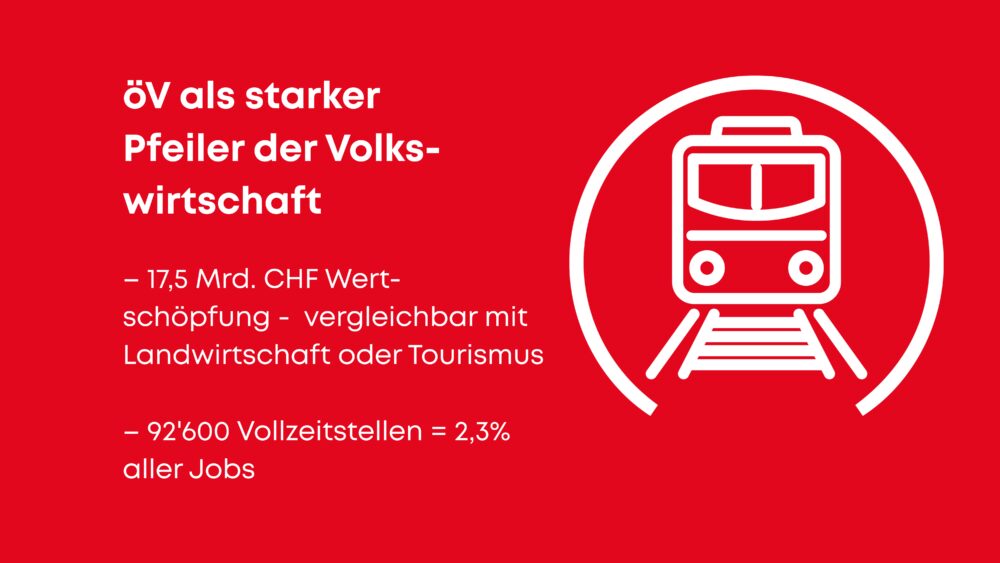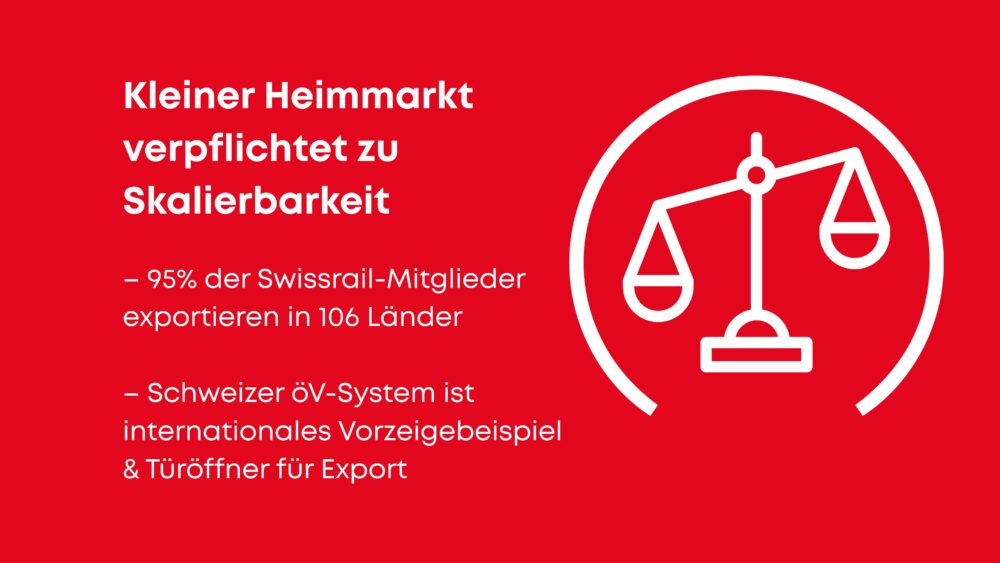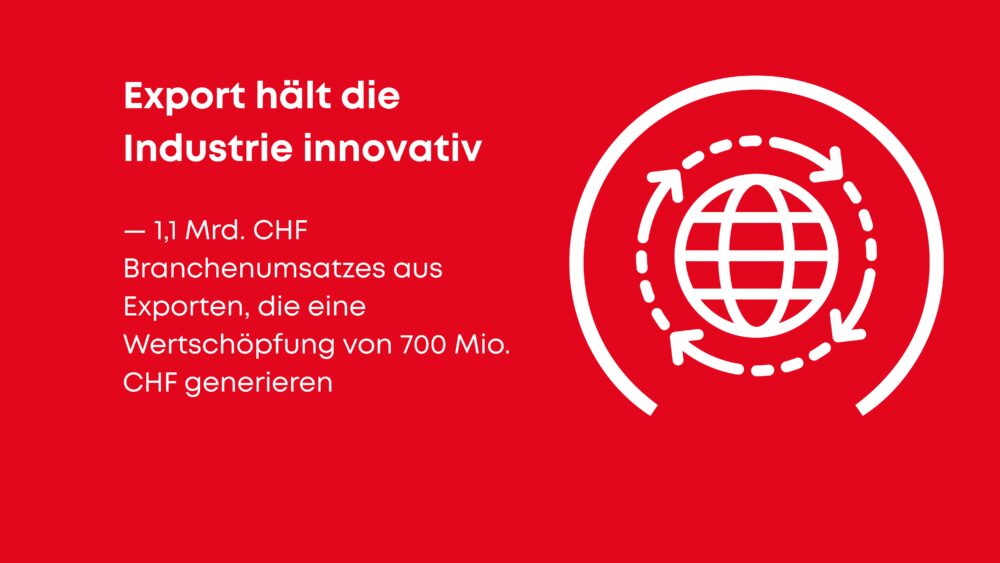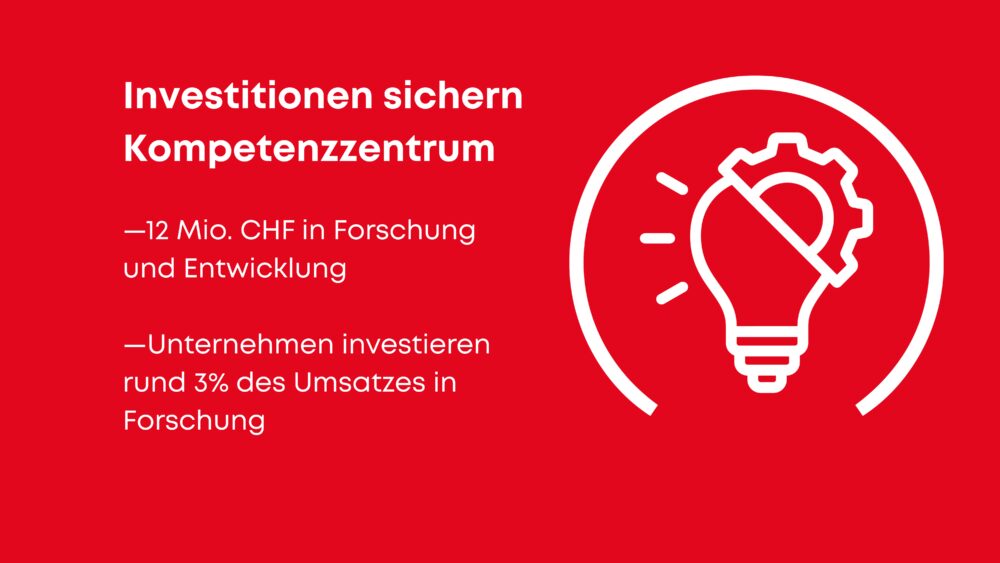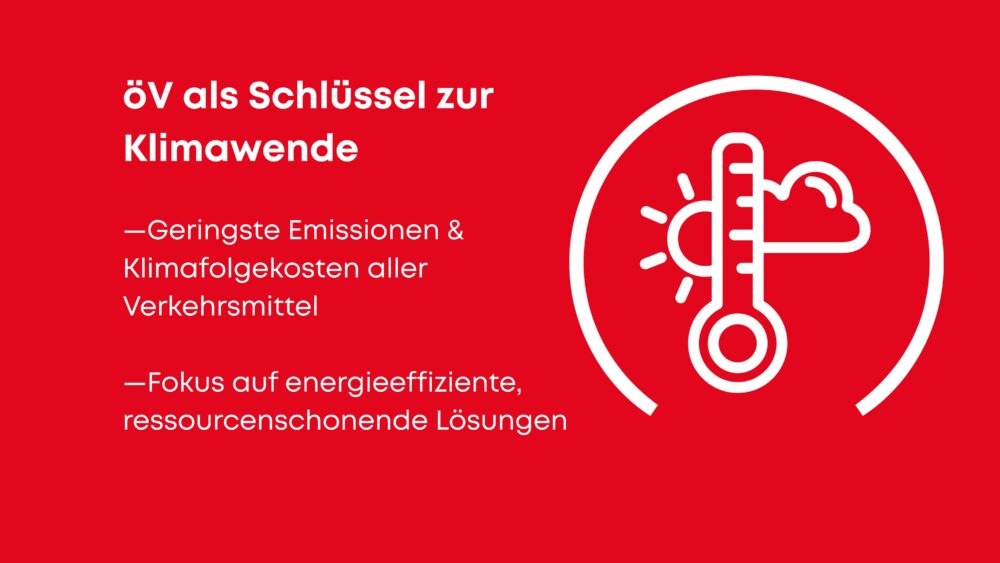Economic Importance of the Swiss Public Transport Industry and Its Exports
Exports Strengthen Swiss Public Transport
The study “Economic Importance of Public Transport in Switzerland”, commissioned by LITRA and Swissrail, clearly shows the contribution of public transport to Switzerland’s prosperity. The results are clear: the public transport sector generates jobs, serves as an international benchmark, and the transport industry is therefore also an export champion.
The figures are impressive: the Swiss railway industry earns every third franc – a total of around 1.1 billion francs – from export business. These generate a value-added of CHF 700 million, making them not only indispensable for business but also beneficial for the entire economy and an important contributor to Switzerland’s prosperity. The limited domestic market forces the industry to scale its products and systems internationally from the start. With highly innovative solutions, strong system expertise, and global demand, the rail industry secures jobs and positions Switzerland as a provider of sustainable transport solutions. International customers can see this firsthand during a visit to Switzerland.
The study makes it clear: exports are not secondary, but a prerequisite for innovation and for a long-lasting rail industry that contributes significantly to Switzerland’s well-functioning public transport system. The success of Swiss companies abroad is therefore in everyone’s interest. The right framework is needed: clear international orientation rather than Helvetisms, targeted innovation support, stable foreign trade relationships, and carefully considered “make or buy” decisions by operators.
The current study highlights why Switzerland can assert itself internationally as a provider of first-class transport solutions: a high-performance public transport system is economically indispensable. In 2024, public transport in Switzerland generated CHF 17.5 billion in value-added. Around 92,600 full-time jobs depend on public transport – more than the hotel or mechanical engineering sectors. Over one million people use trains daily, while rail freight transport in 2023 reached nearly 10 billion tonne-kilometres. This level of usage is made possible thanks to infrastructure in which the federal government invests billions annually.
Last but not least, public transport is a key lever for achieving climate goals: trains are clearly the lowest-emission mode of transport, even when considering production, infrastructure, and maintenance. That is why public transport and shifting traffic from road to rail play a central role in reducing CO₂ emissions. The federal government and industry invest in sustainable and efficient systems to achieve this.
Further articles on the study
LITRA, öV – ein wichtiger Teil der Schweizer Volkswirtschaft (Available in German only)
Infras, Zusammenfassung der Studie - Volkswirtschaftliche Bedeutung des öffentlichen Verkehrs der Schweiz, 2025 (Available in German only)
Sources
Discover interesting topics
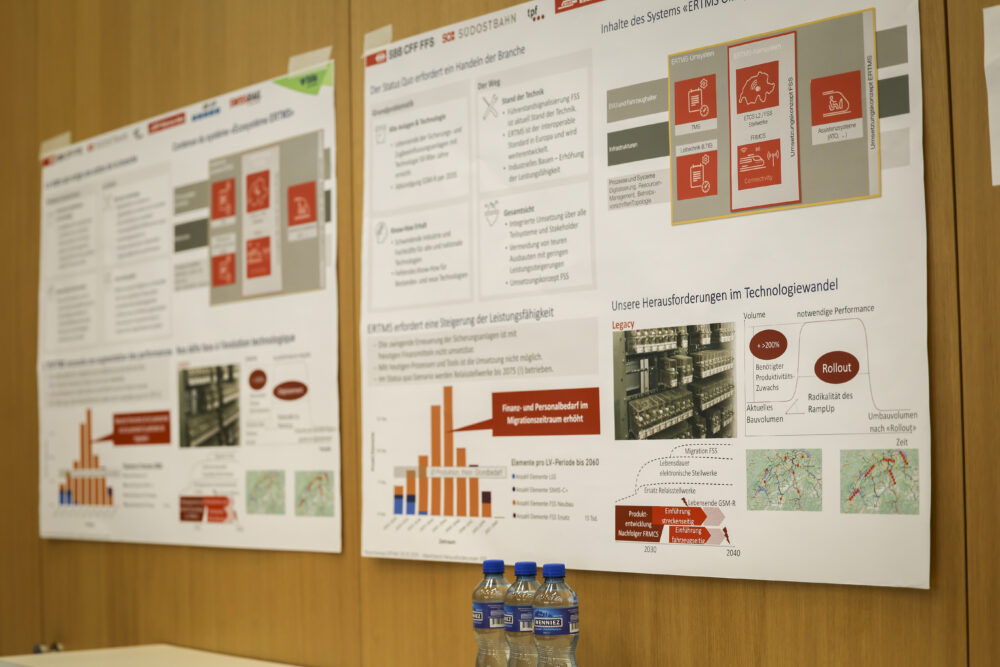
- Safety & automation
- Nationally

- Nationally

- Nationally
